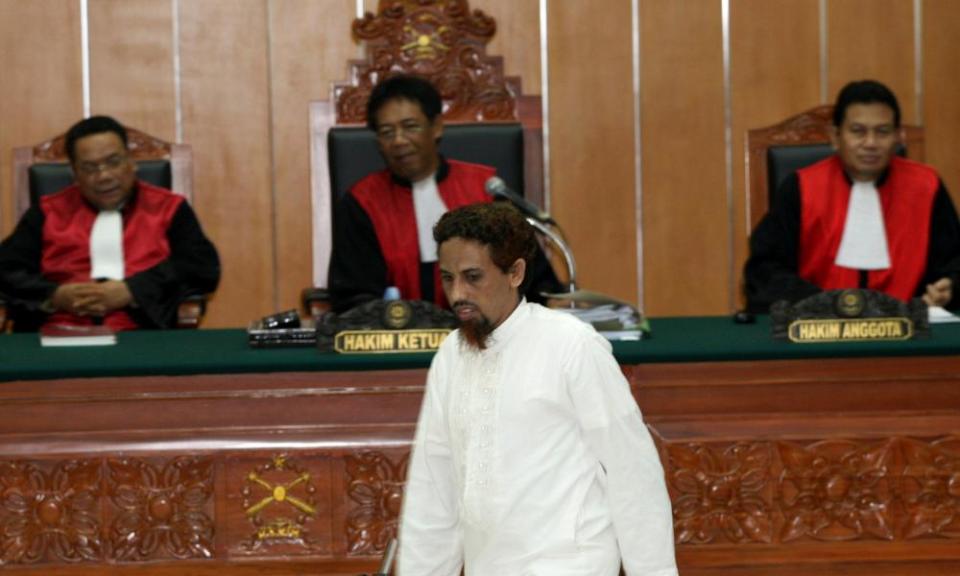Albanese warns of distress for bereaved families over Bali bomb maker Umar Patek early release

Umar Patek, the bomb maker who helped assemble the devices used in the 2002 bombing in Bali, could walk free early from prison this year.
The Indonesian ministry of law and human rights regional office in East Java has proposed the early release after the ex-member of Jemaah Islamiyah, an Indonesian terror group linked to al-Qaida, completed two-thirds of his sentence, plus remissions.
Related: Indonesian militant jailed for 20 years for role in Bali bombings
Patek gained the remissions as he declared his obedience to Indonesia. “He has made a full pledge to the Republic of Indonesia,” said Zaeroji, the head of the ministry of law and human rights regional office in East Java.
A ministry spokesperson confirmed the proposal is in process.
Patek, whose real name is Hisyam bin Ali Zein, was accused of his role in assembling the bomb that ripped through the Sari Club and Paddy’s Pub in Kuta, killing 202 people. The court in Jakarta sentenced him to 20 years in prison. He was spared the death sentence after collaborating with the police and apologising to the victims’ families.
He was also sentenced for his involvement in attacks on Jakarta churches on Christmas Eve 2000, in which 19 people were killed.
The US offered a $1m reward for information leading to Patek’s arrest. He was hiding in Abbottabad, the city in Pakistan where the al-Qaida leader Osama bin Laden was killed, when he was caught by Pakistani authorities in 2011.
In recent years he has become an icon of the Indonesian government’s achievements in deradicalising terrorist prisoners.
Related: Indonesia arrests suspected Jemaah Islamiyah leader on the run since Bali bombings
The Bali bombings were Indonesia’s deadliest terror strike. On Saturday 12 October 2002, a suicide bomber blew himself up inside a nightclub packed with tourists on Kuta beach, killing many people instantly and forcing others to flee outside. Another suicide bomber detonated a massive bomb in a car parked on the street in front of two clubs.
Patek admitted he helped make the bombs, but said he did not know how they would be used. Prosecutors argued that he helped to assemble the suicide vests, as well as the detonating cords and boosters connected to the explosives.
Patek left Bali just before the attacks and spent nine years running from the law, travelling in the Philippines and Pakistan. He was considered one of Asia’s most wanted terror suspects.
Australia prime minister, Anthony Albanese, said the decision would “cause further distress” to families of those caught in the bombings, which killed 88 Australians.
“I feel a great deal of common distress, along with all Australians, at this time,” he said on Friday.
“He was responsible for death and destruction on a major scale. And this decision by the Indonesian Government will add to the trauma that families are feeling at this time.
Albanese said Australian officials had been told about the sentence reduction overnight, and that the Department of Foreign Affairs and Trade was making diplomatic representations around the case.
“His actions were the actions of a terrorist. They did have such dreadful results for Australian families that are ongoing, the trauma which is there,” he said.
The Associated Press contributed to this report

 Yahoo Movies
Yahoo Movies 